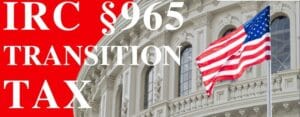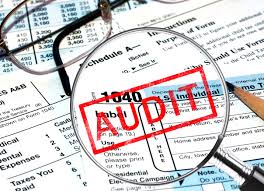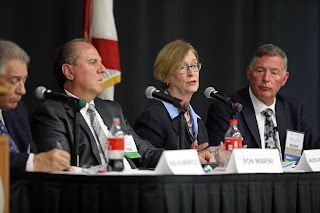The Crypto-Asset Reporting Framework was delivered to finance ministers and central bank governors from Group of 20 countries at the officials' meeting in Washington, D.C., according to an October 10 statement from the Paris-based OECD. The 100-page framework, known as CARF, was issued alongside the latest annual tax report from the OECD secretary-general.
Responding to a G-20 request, the OECD developed the framework for reporting and subsequent automatic exchanges of information among taxing jurisdictions regarding crypto assets.
In Addition, The Statement Said The OECD Is Updating
Its Common Reporting Standard (CRS), A Model For Global Information Exchanges, To Cover Digital Financial Products.
The OECD stated that its new transparency initiative arrives at a time of "rapid adoption" of crypto assets tied to a variety of investment and financial uses. It added that unlike traditional financial products, crypto assets can be transferred and held without intervention from banks and other intermediaries, and absent a central authority monitoring such transactions.
"The crypto market has also given rise to new intermediaries and service providers, such as crypto asset exchanges and wallet providers, many of which currently remain unregulated," the statement added. As a result, crypto assets haven't been covered by the CRS, "increasing the likelihood of their use for tax evasion while undermining the progress made in tax transparency" through the adoption of the standard.
"The Common Reporting Standard has been very successful in the fight against international tax evasion," OECD Secretary-General Mathias Cormann said in the statement.
In 2021, He Said, More Than 100 Jurisdictions Exchanged Information On 111 Million Financial Accounts, Covering Total Assets Of €11 Trillion.
"Today's presentation of the new crypto asset reporting framework and amendments to the Common Reporting Standard will ensure that the tax transparency architecture remains up to date and effective," Cormann added.
The framework will add transparency to transactions involving crypto assets by enabling sharing of relevant information, on an annual basis similar to that of the CRS, with the tax administrations of jurisdictions where an individual or entity resides. The framework will target any digital representation of value that relies on blockchain or similar technology to cryptographically secure a distributed ledger for validating transactions.
Over 100 countries and territories with taxing power participate in the CRS, which the OECD implemented in conjunction with the 2010 enactment of the U.S. Foreign Account Taxpayer Compliance Act. Under FATCA, countries are required to exchange bank account information with U.S., which isn't a CRS party.
In May, a Treasury Department official described similarities and differences between digital asset reporting systems then being proposed by the U.S. and the OECD.
US Taxpayers should check whether it is still possible to correct the tax return or file a Voluntary Disclosure in order to avoid any criminal proceedings and penalties, as well as administrative costs.
Have a Virtual Currency Tax Problem?
Value Your Freedom?

Contact the Tax Lawyers at
Marini & Associates, P.A.

for a FREE Tax Consultation Contact us at
www.TaxAid.com or www.OVDPLaw.com
or Toll Free at 888-8TaxAid (888 882-9243).
 In IR-2022-185, issued on October 19, 2022, the IRS reminds taxpayers affected by Hurricane Ian in areas covered by certain Federal Emergency Management Agency (FEMA) disaster declarations they may have more time to file their returns to qualify for the penalty relief under Notice 2022-36 for their 2019 and 2020 tax returns.
In IR-2022-185, issued on October 19, 2022, the IRS reminds taxpayers affected by Hurricane Ian in areas covered by certain Federal Emergency Management Agency (FEMA) disaster declarations they may have more time to file their returns to qualify for the penalty relief under Notice 2022-36 for their 2019 and 2020 tax returns.









